Australian rugby player Lucy Dinnen reflects on the heartbreaking reality facing many female athletes
Experts have expressed concern about the gap in research and strategy regarding the care for women in sport who experience pregnancy loss. Lucy Dinnen is one of many athletes to suffer in silence.
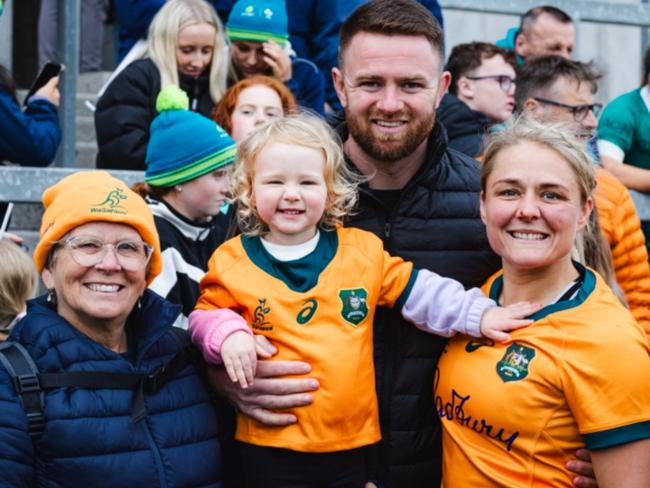
Australian rugby player Lucy Dinnen was nine weeks pregnant with her second child when she received devastating news – “there was no heartbeat”.
As an elite athlete who had already given birth to a daughter, Dinnen was shocked she was now facing the heartache of miscarriage.
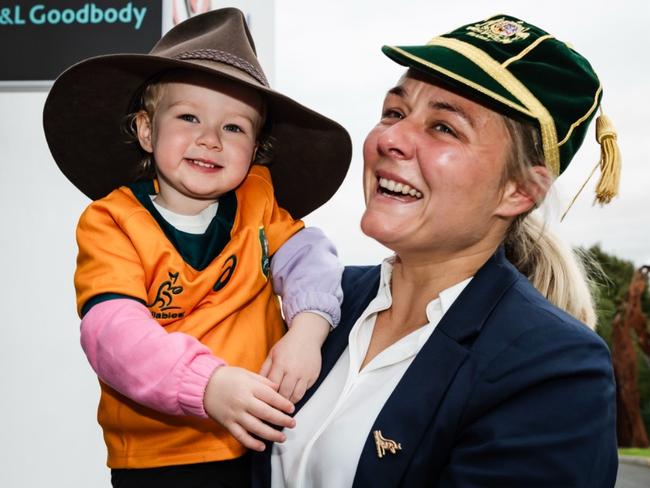
Making her situation worse, she had not even shared the pregnancy news with any of her teammates after quietly stepping away from the team environment at just two weeks into the pregnancy.
So she suffered in silence and without support from her sport until finally revealing her ordeal in an emotional Instagram post in March after repeated questions about her absence.
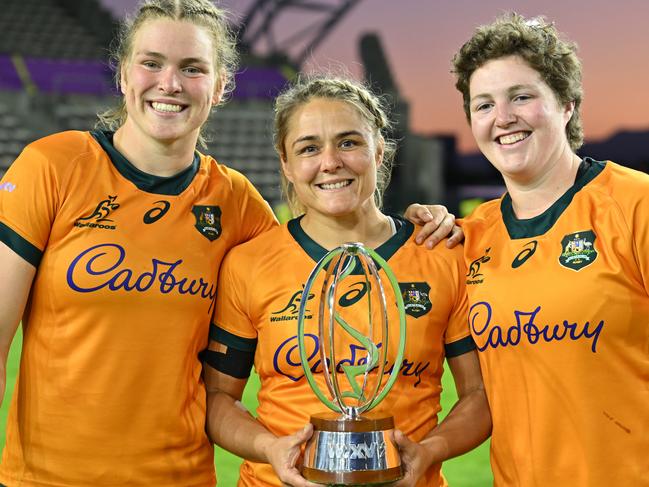
“You’re expecting something and suddenly, the world’s gone upside down and it’s not happening anymore,” Dinnen told CODE Sports.
“It can happen to anybody regardless of who you are, what you do or your background. I was very fit, I’d just come off the tour with the Aussie team but it still happened to me.
“It was about the nine-week mark, we went for the scans and there was no heartbeat.
“It was somewhat harder for me because there were a lot of people asking why I wasn’t playing.
“I wish I did say I was pregnant a bit earlier, but I think that’s why I put an Instagram post out, it was to stop people asking.”
A common problem
One in four Australian women suffer from a miscarriage so Dinnen knows she is not the first elite athlete to suffer such pain and she won’t be the last.
Netball star Jhaniele Fowler-Nembhard returned to the court for the West Coast Fever earlier this year just three months after her own pregnancy loss, while Gretel Bueta and Nat Medhurst are both former Diamonds stars to have gone public with their own heartache.
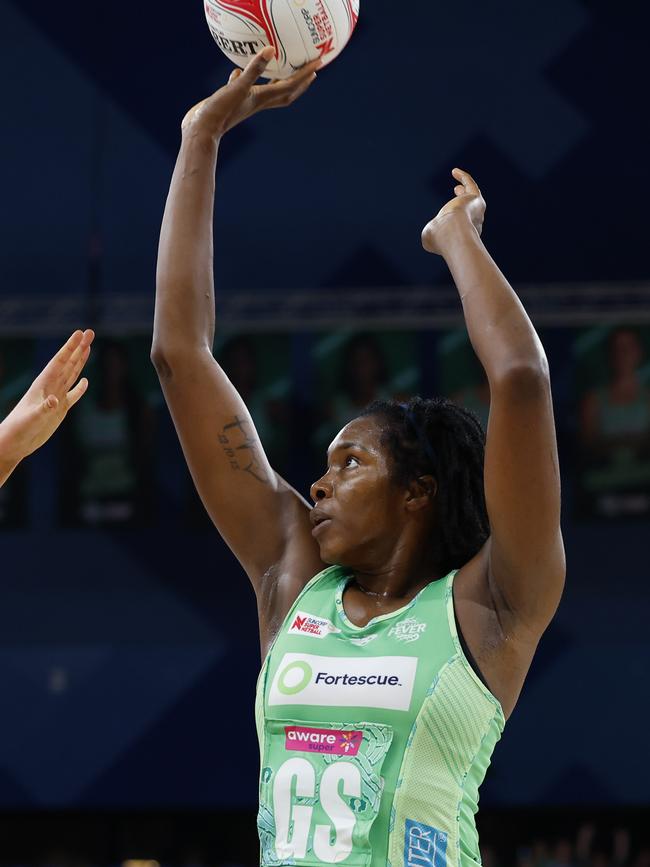
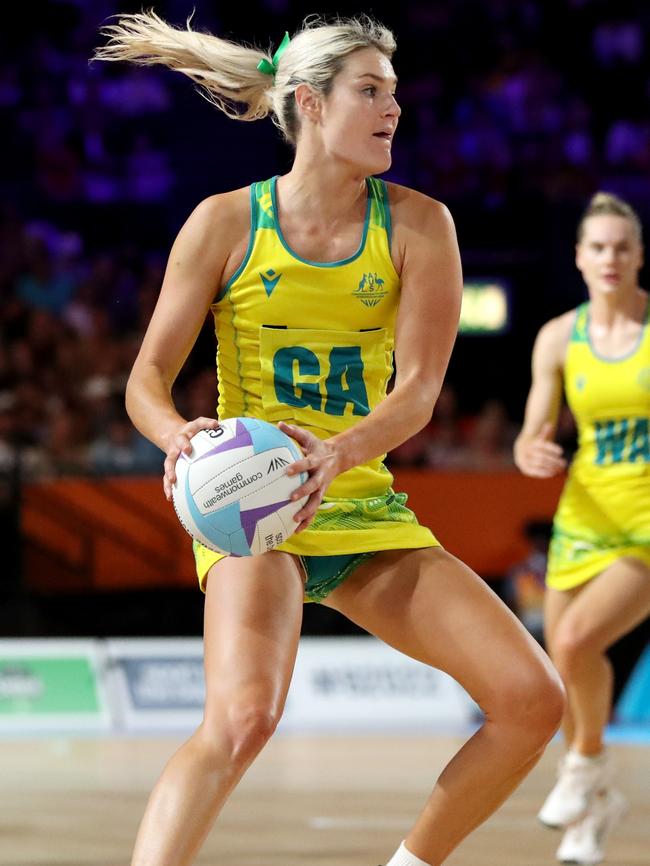
The rapid growth of professionalism across women’s sport has meant various codes have all adopted pregnancy policies with maternity leave benefits – but none have clear guidelines on what happens when it comes to the treatment of athletes after a miscarriage.
Dinnen says since she advised the Wallaroos of the miscarriage, contact from them has been minimal.
“They need to be better at managing women and that we’re different to men,” she said.
“You can be the best coach in the world, but if you don’t know how to talk about stuff like the menstrual cycle or pregnancy, then you’re in the wrong job.”
The 31-year-old now plays for the Western Force in Perth and says the club is supportive of her and her young family, but she wants her experience to lead to improved understanding of pregnancy loss in sport.
She highlights the AIS Mum-Alete program as a crucial learning tool for those in women’s sports.
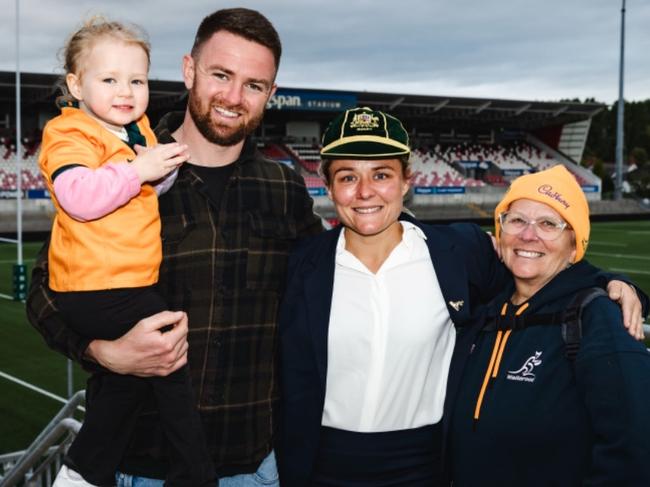
“I would recommend creating a safe environment for athletes to feel comfortable talking about their plans for pregnancy and connect them with information on pregnancy and counselling services if they do have a miscarriage, we need to normalise the conversation,” she said.
“Someone should be appointed as a player welfare staff member who ensures the link between the team and the player, so the player doesn’t get lost.”
In response to Dinnen’s experience, a Rugby Australia spokesperson issued the following statement:
“We are deeply sorry to learn of Lucy’s loss. Rugby Australia has pregnancy guidelines for Wallaroos players in place. We are always open to reviewing and improving them to ensure players are well supported.”
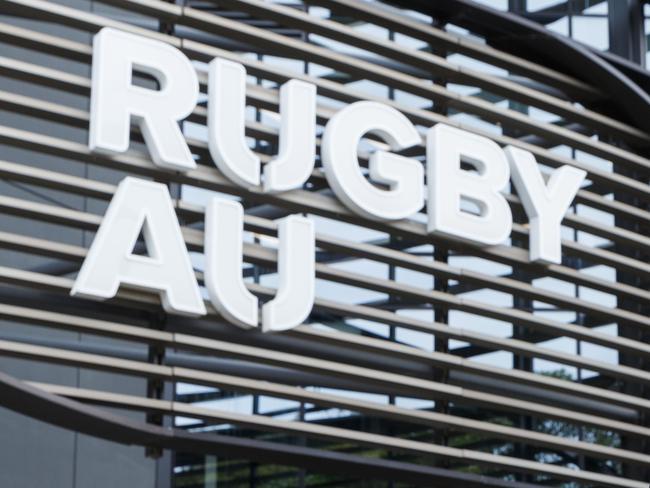
‘It’s medical misogyny’
The gap in research and strategy for caring for women in sport who experience pregnancy loss is a concern even among experts.
“We have exercise guidelines for an awful lot of populations in an awful lot of situations but if you go looking for advice for exercise post pregnancy loss, there’s absolutely nothing in the literature,” said Kate Edwards, associate professor of exercise and sport science at University of Sydney.
“44 times a minute there’s a pregnancy loss around the world, so for a medical event that happens so commonly to such a large proportion of the population, the fact that there’s no guidelines is a disaster.
“You could describe it as medical misogyny.
“What we do know is that exercise has massively beneficial effects for physical and mental health and I think the effect for mental health is something we’ve paid a lot of attention to.
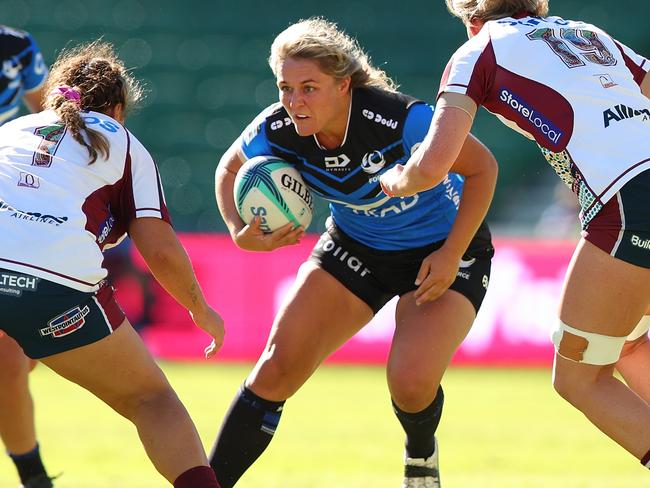
“It follows the exact path that you would expect it to, the women suffer tremendous mental health deficits after pregnancy loss and those can go on for years, the evidence of the impact is there, but any intervention is really missing.
“We’ve really struggled to recruit practitioners to talk us through the clinical reasoning because there’s no research.”
Perhaps the biggest hurdle sporting leagues face in trying to establish effective guidelines is that there is nuance to each case.
“It changes a lot depending on the timing of the pregnancy loss,” she said.
“A loss in the first four weeks is different to a loss at 12.”
We must act now
Three-time netball world champion Medhurst has experienced the trauma of pregnancy loss in the high-performance environment and believes women’s sport needs to address the issue.
While she is confident Fowler-Nembhard has received greater support than she experienced herself during her career, the overarching Netball Australia pregnancy policy hasn’t changed since 2017, even in the wake of Gretel Bueta’s high profile miscarriage in 2022 when she was the biggest name in the game.
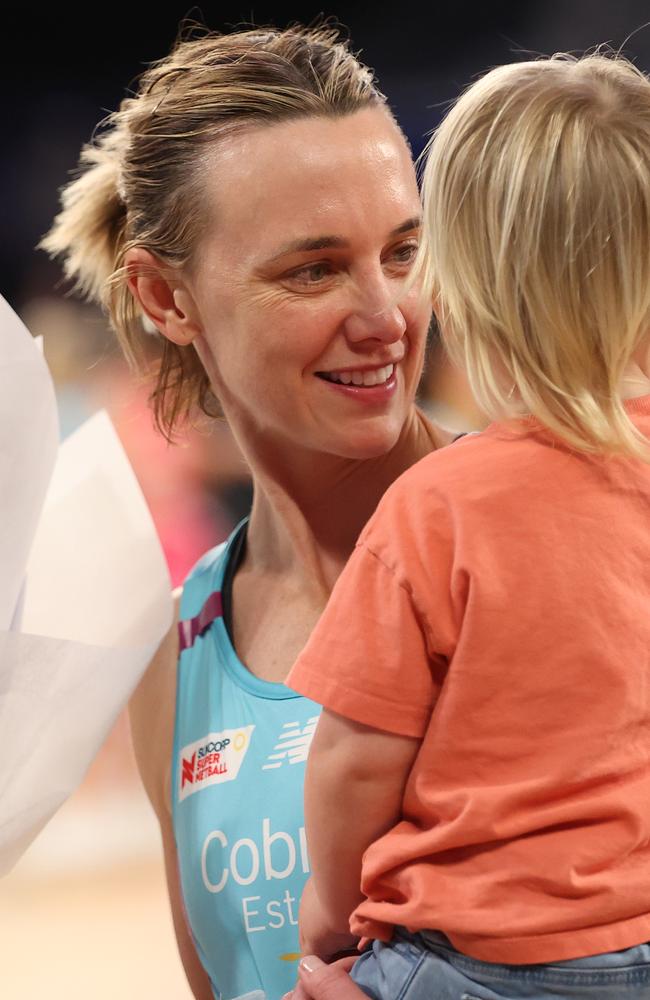
“From a netball perspective the issue for me is that the policy is very outdated. It was back in 2017 when they first created it and at that point netball was the leader in this space,” she said.
“I went through a miscarriage, but miscarriages are so incredibly common, and we saw the instance with Gretel (Bueta).
“Nothing changed on the back of that and as I said there’s probably a lot of netballers that we don’t know about.”
Medhurst says in her experience netball hasn’t done enough to educate women on their own health.
“In netball, given we hang our hat on being such a female proud sport, I think we should be leading the way in this,” she said.
“I was an athlete for 20 years and you’re constantly with medical staff getting all these different tests and things done around your ability to perform, and when I then took it into my own hands because wanted to look at starting a family, I went and saw a specialist and I couldn’t believe that not once during my career had anything around my health as a female ever been asked.”




